Pichi Richi Railway, SA
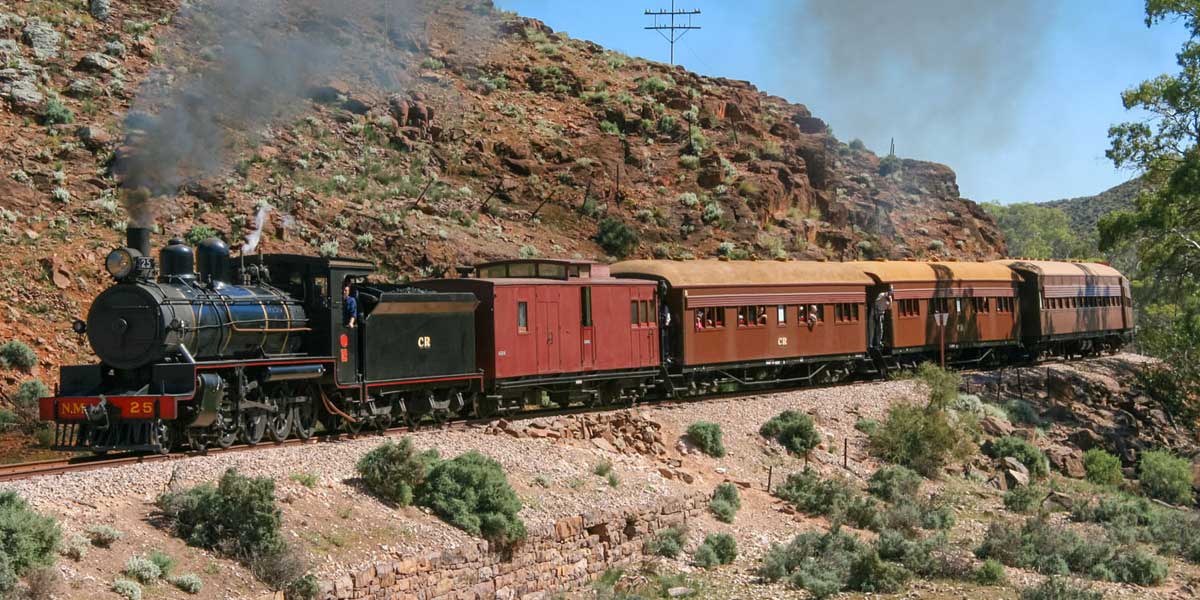
Take a ride back in time on the Pichi Richi Railway. An historic train (sometimes steam, sometimes diesel train) that runs on a section of the original Ghan line that ran between Port Augusta and Alice Springs (between Port Augusta and Quorn), the railway is one of Australia's most famous tourist railways, heading through the picturesque Pichi Richi Pass. If you are visiting this region, it is worth timing your visit around the day that it operates.
Services usually operate on Sundays during school holidays and usually once a month on a Sunday in the winter months outside of that time. Check the website for a timetable. Some services depart from Port Augusta railway station (the same as the Indian Pacific/Ghan station), others depart from Quorn's historic railway station. While you are there, take a walk around the historic rail yard and visit the Railway Museum.
The Pichi Richi Railway is a heritage steam railway, based at Quorn in South Australia's Flinders Ranges. Trains operate from Quorn and Port Augusta on the famous old Ghan narrow gauge railway. Offering full or half-day trips between Quorn and Port Augusta, this is the last remaining operating portion of the "Old Ghan" railway line.
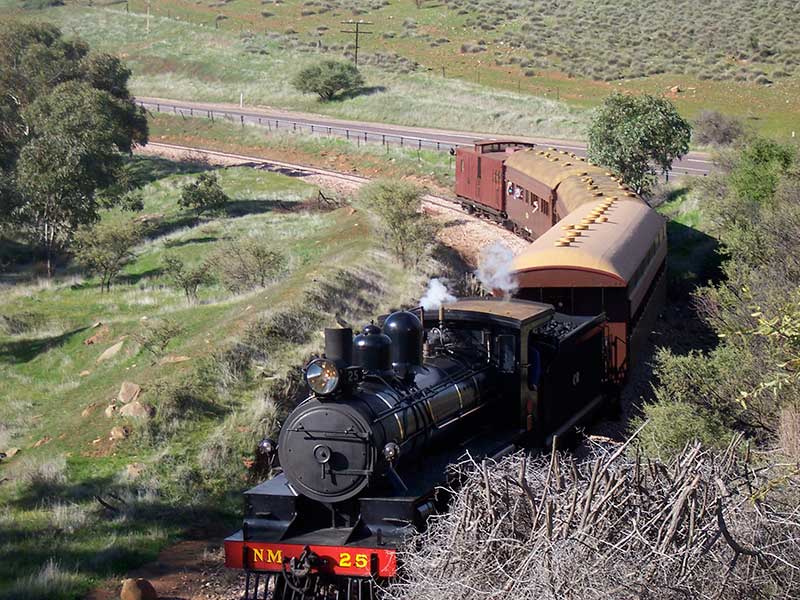
The Afghan Express: steam-hauled train using timber-bodied carriages built in the late 1920s. Port Augusta to Quorn (return), six hours including a two hour stop for lunch in historic Quorn, SA Tourism Tiny Tourism Town winner 2022.
The Pichi Richi Explorer: steam train using South Australian railways carriages, some dating from the 19th century. Quorn to Woolshed Flat, return two hours.
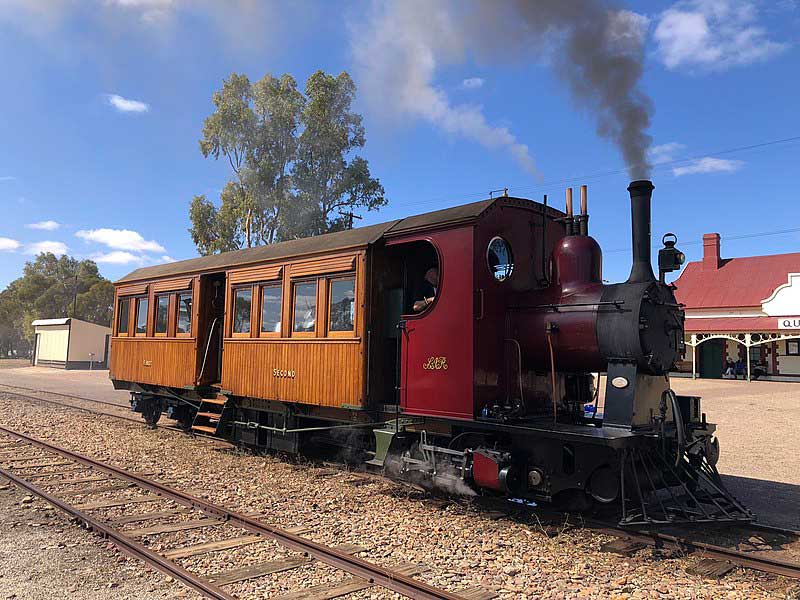
The Coffee Pot: unique Steam Motor Coach No.1 , the last operating example of its type worldwide. The day includes a welcome drink, canapes and a 3 course lunch and is an unique experience for only 22 passengers.
Twilight Explorer: runs March and November, relax aboard the Barwell Bull and watch the evening sun paint the ranges in sunset colours.
Quorn, SA
The operations of the Pichi Richi Railway are centred around Quorn, located 39 km northe-ast of Port Augusta. Like many towns in mid-north South Australia, Quorn is largely a child of the age of steam, when the railway lines from the south and the east snaked out to connect with far-flung settlements their intersections and junctions forming the bases for busy railways towns.
The town was surveyed by Godfrey Walsh in 1878 and named after Quorndon in Leicestershire, United Kingdom, as part of the preparations for building the railway line from Port Augusta northwards. The railway line from Port Augusta to Quorn opened in 1879 and was subsequently extended north to Government Gums (Farina) in 1882, Marree in 1884, Oodnadatta in 1890 and Alice Springs in 1929. This railway line later became known as the Great Northern Railway and later the Central Australia Railway.
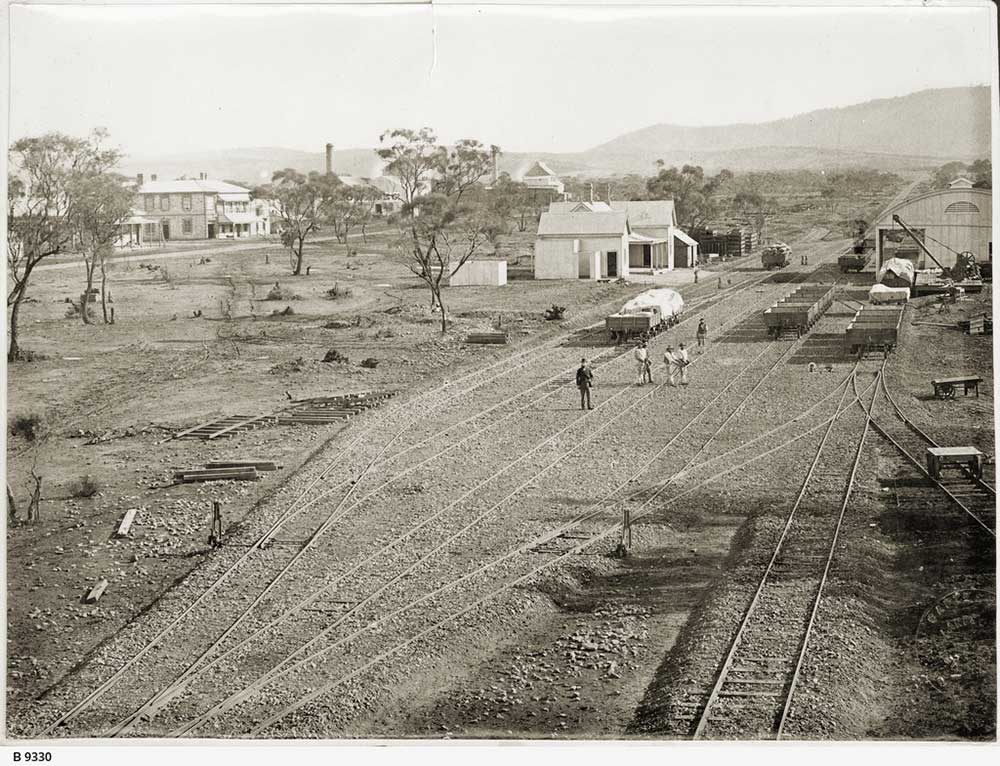
Quorn station, 1890s
In 1917, Quorn became the crossroads of any north-south (on the Central Australian Railway to Oodnadatta) or east-west travel in Australia, when the Trans-Australian Railway was completed between Port Augusta and Kalgoorlie. This made Quorn an important town, given that any person travelling east-west or north-south in Australia would need to pass through Quorn. As a result, many fine buildings were built as the town expanded.
Quorn's role as a crossroads was lost when a standard gauge railway connection was opened between Port Pirie Junction and Port Augusta in 1937, meaning east-west trains bypassed Quorn. However, during World War II, Quorn was a vital service point for trains heading north to Alice Springs and carried over 1,000,000 troops heading to Darwin and on to Papua New Guinea. Trains services through Quorn peaked at over 50 per day during and immediately after the period of World War II. Services during this time also included coal mined at Leigh Creek being moved to the newly opened Playford A Power Station in Port Augusta.
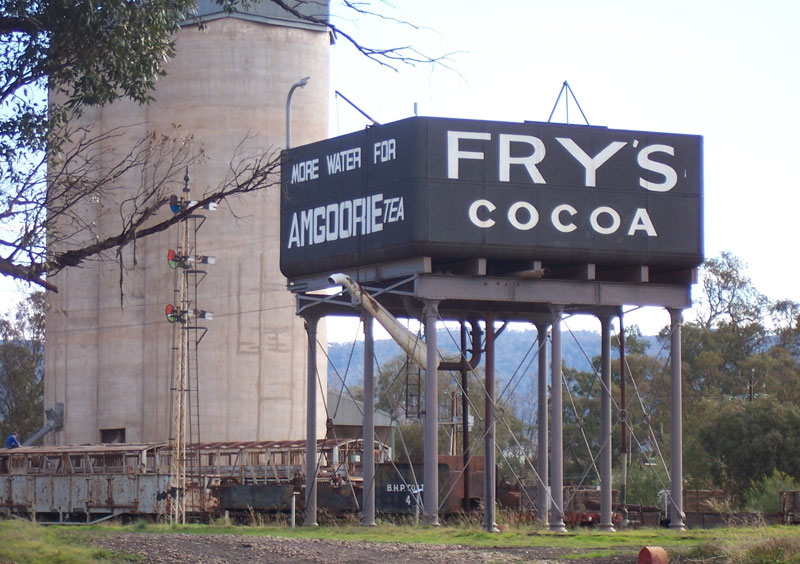
During the 1950s a new standard gauge line was built that passed on the western side of The Dutchmans Stern, Mount Arden and Mount Eyre, from Stirling North to Brachina and then roughly following the original narrow gauge route through Leigh Creek and to Marree, thus bypassing Quorn. This bypass took away the last railway traffic through the Pichi Richi Pass, and the last major freight traffic through Quorn. The only services left operating through Quorn were freight between Peterborough and Hawker. As a result, Quorn's importance diminished and eventually in 1980s the railway was completely closed as the last freight was moved to road transport. One unusual aspect of the railway working from Peterborough to Quorn and then on to Hawker was the need for the engine to be turned and attached to the opposite end of the train when arriving at Quorn, as it was not a "through" station for the trip from Peterborough to Hawker.
In 1973, a group of railway enthusiasts assembled with the desire to preserve the unique bridges and stone work built in the previous century that formed the railway through the Pichi Richi Pass between Quorn and Stirling North. Thus the Pichi Richi Railway Preservation Society was formed. Although the intention was to just preserve the railway through the Pichi Richi Pass, they later acquired operable railway rollingstock and locomotives and today provide a tourist railway service through the Pichi Richi Pass from Quorn to Port Augusta. There is at least one book by preservationists showing the line in its heyday.
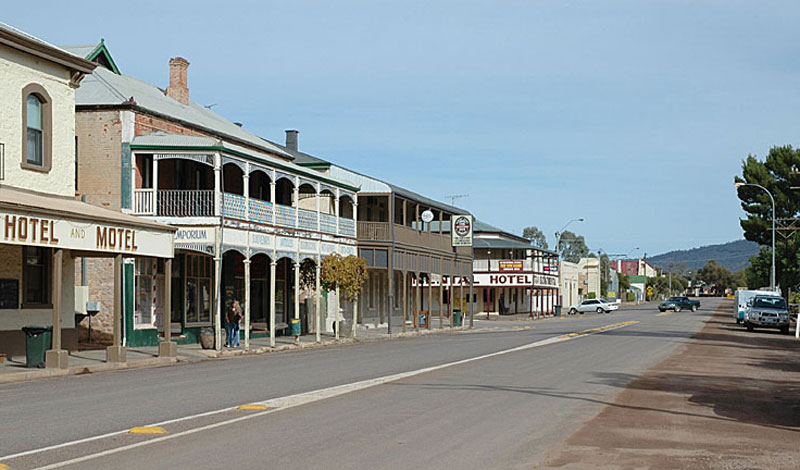
Quorn At The Movies
The town's buildings have made Quorn a popular location for feature films and commercials. The first one was Bitter Springs, filmed in nearby Warren Gorge in 1949. It starred Chips Rafferty, Tommy Trinder, Charles 'Bud' Tingwell, Michael Pate and Gordon Jackson. The Hollywood movie, The Sundowners, which starred Robert Mitchum, Deborah Kerr, Peter Ustinov and Chips Rafferty, was filmed at Quorn in 1961.

The Water Deviner starring Russell Crowe
Other films shot here include Kangaroo (1953), starring Peter Lawford, Maureen O'Hara, Chips Rafferty; Sunday Too Far Away (1975), starring Jack Thompson, Reg Lye and John Ewart, was filmed in the Flinders Ranges near the town with Quorn and Peterborough both featuring in it. The 1986 TV mini-series, The Shiralee, starring Bryan Brown and Rebecca Smart; the TV mini-series The Last Frontier; a youthful Mel Gibson was filmed at the same hotel, running down the stairs and onto Railway Terrace in a scene in the movie, Gallipoli. Many of the town's historic building had supporting roles in the film. Russell Crowe also filmed his Gallipoli movie, The Water Deviner, in and around Quorn.
Coincidentally, the English town of Quorndon after which Quorn is named, is also a popular location for television shows and feature films. Enigma, a romantic thriller based on the international best-selling novel by Robert Harris, directed by Michael Apted and starring Dougray Scott and Kate Winslet, was shot there.
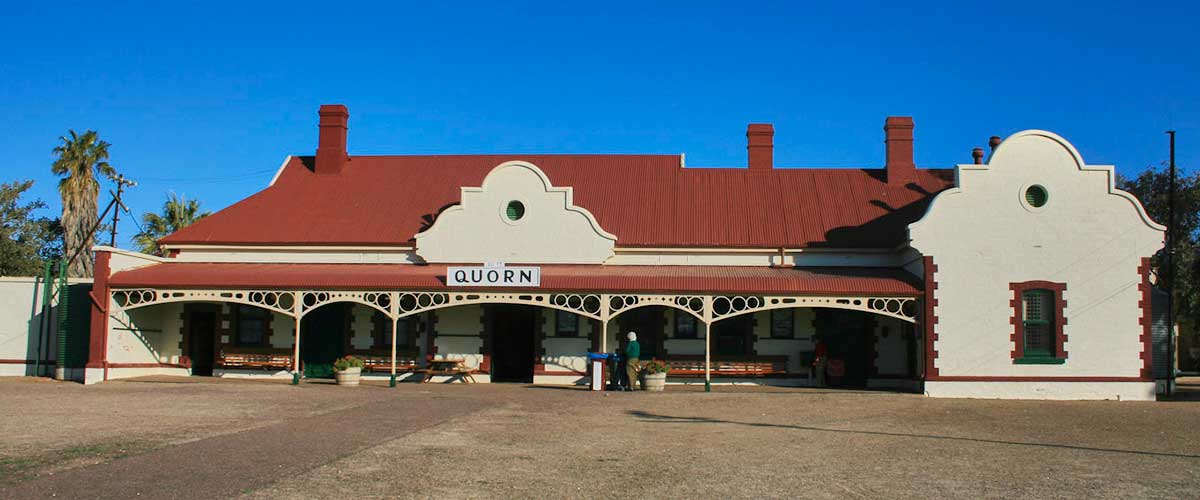
Quorn railway station
Design by W3layouts


